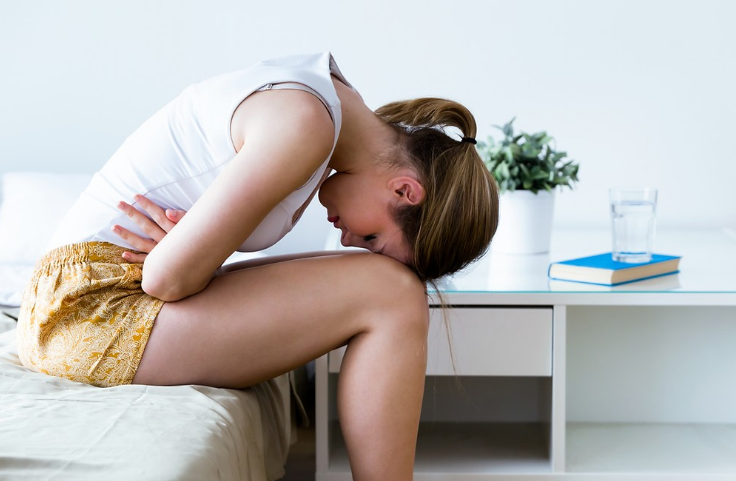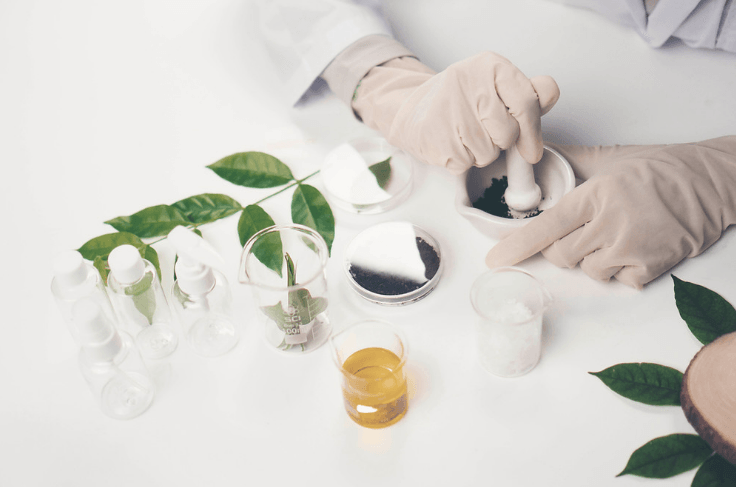What is Interstitial Cystitis?
February 12, 2024
An integrative approach to the common inflammatory bladder condition from an East/West perspective.

Interstitial Cystitis is a chronic condition of the bladder discomfort and pain, can be debilitating and has no clear etiology. According to the Rand IC epidemiology study, it is estimated that approximately 3- 8 million women in the United States suffer from some form of interstitial cystitis.
The symptoms of IC include painful difficult urination, pelvic pain, painful sex, burning urination among other associated inflammatory symptoms. Symptoms must persist for over six weeks and must not occur with any sign of infection or known cause to be diagnosed as interstitial cystitis.
The diagnosis of this condition was originally based on the following symptoms: bladder pain, urinary urgency, and evidence of bladder pathology by cystoscopy under anesthesia. However, now the criteria for diagnosis varies and there is no uniform way to diagnose the disease.
Physiological changes in the bladder, pelvis, and peripheral/central nervous system are often present. Structural pathology includes inflammatory infiltrate, granulation tissue, mastocytosis, intrafasicular fibrosis, reduced bladder capacity and Hunner’s Ulcers.
IC/PBS is not only a urological condition, but also a gynecological, neurogenic, and gastrointestinal related condition.
Common concurrent diseases include IBS, pelvic floor pathology, anxiety and depression, dyspareunia and fibromyalgia . Research done to identify the etiology of IC/PBS have led scientists to believe the disease is multifactorial and can include both genetic and environmental factors.
The most definitive theory of the etiology of IC lies in the idea of bladder wall epithelial dysfunction, bladder sensory nerve dysfunction and the activation of mast cells resulting in the condition. Changes in the urothelial surface and alteration in it’s permeability leads to the activation of mast cells, increased urea absorption, changes in the barrier function of the urothelium and the overall weakening of the bladder function.
In many cases, prior bacterial infection leads to bacteria becoming sequestered within urothelial cells causing further impairment of permeability. Interstitial cystitis is also classified as a neuro-inflammatory condition. Mastocytosis occurs in 30-65% of IC patients and many patients present with increased levels of histamine, histamine metabolites and tryptase.
IC/PBS also has many features of an autoimmune disease in terms of chronicity, flare ups, remissions, positive response to steroids, and high anti- nuclear antibodies.
There are a number of pharmacological treatments used for this condition, with limited success. These treatments include:
- Tricyclic Antidepressants-( Most commonly prescribed) Taken in low doses, it can relax the bladder and intercept neuro-chemicals that cause bladder pain.
- Pentosan Polysulfate (Elmiron)- The only oral medication approved by the FDA to treat IC. Can potentially improve the bladder lining, reduce inflammation. Must be taken for 3-6 months to possibly take full effect yet statistically proves to be ineffective in many patients.
- Antihistamines- Interfere with the mast cell’s release of histamine, relieve inflammation.
- Pain Medication ( NSAID/ Acetaminophen) – Temporarily relieve mild to moderate pain.
- Dimethyl Sulfoxide- An intravesical therapy/ bladder instillation in which the exact mechanism of action remains largely unknown. It is thought to reduce bladder inlammation, act as anti spasmodic, and relieve pain. Because of its ability to penetrate the bladder lining, it can also aid in the delivery and absorption of other bladder instilled medication such as steroids, heparin, and analgesics.
- Hyaluronic Acid ( Cystistat)- Administered in instillations intravesicularly weekly for four weeks or until symptoms improve. It can act to reduce inflammation and improve the urothelium.
- Vaginal Valium Suppository- Used to relax the muscles in the pelvic region.
Other treatments of Interstitial Cystitis( PBS) include:
- Hydrodistention Therapy ( Also a diagnostic method) – Procedure performed with cystoscopy as an outpatient procedure under regional or general anesthesia. Bladder is filled to a high pressure with fluid causing the bladder wall to stretch. In this state, pathological changes can easily be inspected. This procedure may work to reduce pain and discomfort in some patients.
- Transcutaneous Electrical Nerve Stimulation (TENS)- A device worn on the body producing electrical impulses delivered to the body through small adherent pads which is thought to modify pain pathways.
- InterStim- Implantable device that directly stimulates the sacral nerves and improves bladder function while reducing pain
- Dietary plans/ modifications – An Anti- inflammatory diet. Increasing the PH of the urine to reduce bladder irritation. Eliminating foods that cause a flare of symptoms. Reducing acidic foods and foods that are high is arylalkylamines.
- Neutraceutical Therapy- Such as L- Arginine, Quercetin, Probiotics, Calcium glycerophosphate, and other herbal treatment
- Bladder Training – self control techniques to suppress the urge to urinate and lengthening the time between the urge to void.
- Full body Massage/ Transvaginal massage- focusing on the levator ani, obturator interns, piriformis muscles and trigger points to relax the muscular structure surrounding the bladder. Full body massage is also been proven to reduce pain in IC patients.
The Natural Approach
Traditional Chinese Medicine Patterns and Treatment

When I.C. is approached using Chinese medicine pattern diagnostic theory, we can determine which herbal formula is most suitable for each case based on the presenting symptoms. Herbal formulas can aid in your body’s natural response to correcting the imbalance.
A regular acupuncture protocol can be a highly effective treatment to help ease the pain/ discomfort associated with Interstitial Cystitis.
Patterns may be combined and complex. Below are general patterns.
Spleen Qi Deficiency:
Frequent, long, clear urination, maybe urinary incontinence or enuresis, Pale or sallow complexion, Pale lips, Fatigue, Lassitude, Weakness, Dizziness, Anorexia, Four limbs feel cold, tired and heavy, Abdominal and epigastric distention after eating, Loose stools
T: Pale and flabby – may have teethmarks. C: White P: Even, forceless and deficient
Formula: Bu Zhong Yi Qi Tang (Modified ) ex. + Fu Ling + Wu Wei Zi + Jin Ying Zi + Tu Si Zi
- Qian Shi
Spleen Qi and Heart Blood Deficiency:
Frequent, long, clear urination, Maybe urinary incontinence or enuresis, Palpitations,Insomnia, Much dreaming, Easily startled, Poor memory, Four limbs tired and lethargic, Loss of appetite
Distention and fullness of the epigastrium and abdomen, Loose stools, Sallow complexion
Copious, pale menses, Uterine bleeding or Light menstrual flow or Amenorrhea
T: Pale P: Thready and weak
Formula: Gui Pi Tang ( Modified) ex. +Wu Wei Zi +Shan Zu Ye +Yin Jing Zi +Lian Zi
Liver Qi Stagnation with Damp Stagnation
Frequent urination, An unfinished feeling after voiding, Rib discomfort ,Lower abdominal, can have scanty urination, distention and fullness ,Irritability, Possible pre-menstrual or menstrual breast distention and pain, other signs of LV Qi Stagnation
T: normal or Dark and possibly swollen. C: Greasy and white P: Wiry
Formula: Chai Hu Su Gan San (Modified) ex. +Hua Shi +Yu Jin +Che Qian Zi +Ze Xie
Kidney Yin Deficiency With Empty Fire Blazing
Frequent short, red urination or, Scanty, concentrated urine with difficulty initiating the flow, dribbling urine, Dizziness, Tinnitus or deafness, thirst, malar flush, night sweats, insomnia, dry or recurrent sore throat, constipation, palpitations, weakness or soreness of the lower back.
T: Red C: Little or none Pulse: Thready, Rapid
Formulas:
Zhu Ling Tang (Modified) + Lui Wei Di Huang Wan
Zhi Bai Di Huang Wan ( Modified)
Da Bu Yin Wan
Blood Stagnation in the Lower Jiao
Frequent, painful , dark urination, Turbid urine, Maybe purple clots in the urine ,Dribbling urination, Lower abdominal distention and pain, Pain is worse with pressure
T: Dark with purple macules or spots C: White. P: Choppy and/or wiry
Formula: Shao Fu Zhu Yu Tang (Modified) ex. +Zhu Ling +Che Qian Zi +Qu Mai +Hua Shi +Ze Xie
Damp Heat in the Lower Jiao
Frequent, urgent, painful urination, burning, hot sensation in the urethra, sticky dry mouth, thirst with no desire to drink, lower abdominal distention and fullness, constipation
T: Red C: Yellow P: Slippery and rapid
Formula: Ba Zheng San ( Modified) ex.combined with blood stag. + Wu Ling Zhi + Pu Huang +Yan Hou So
If you or someone you know is struggling with urinary symptoms or has been diagnosed with interstitial cystitis it is important to be aware of the natural supplementary medicinal approach to this common condition. Using natural medicine, including herbs and acupuncture, can speed up the healing process.
For questions , a consultation or to schedule a treatment, please contact our office today.
Have Questions?
Let Me Show You Around
I am here to meet you where you are and serve as an advocate for your health. My approach is rooted in education to inspire self-healing. Together, let’s use the wisdom of ancient Chinese medicine and the practicality of integrative care to bring you into balance.
Hi, I'm DR. Jenna
About Dr. Jenna Vitale
New Clients Start Here
Insurance
Rates & Packages
Wellness Specialities
Holistic Facelift
F.A.Q.
Contact Us
Shop Our Pharmacy